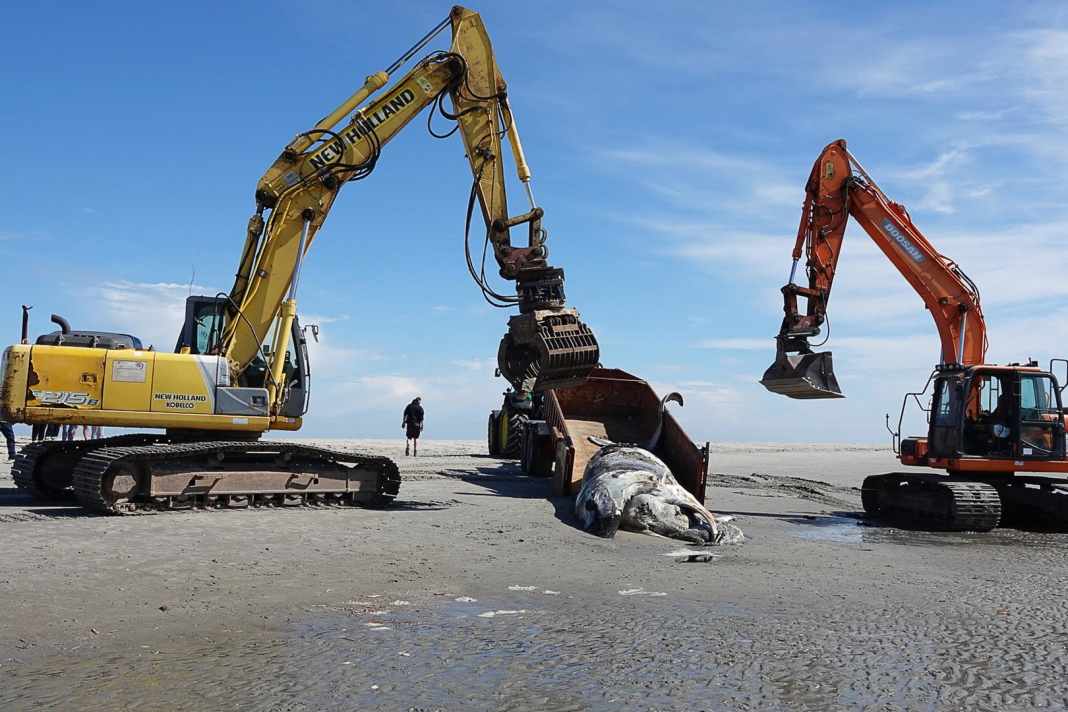


About 800 metres south of the pier in the Bad district of St. Peter-Ording, a seal hunter found the carcass of a humpback whale on the beach last Saturday. The bull, which was around 10 metres long, was already badly decomposed. Experts suspect that the whale had been dead in the water for some time before it was washed ashore. The carcass was salvaged by a specialised company on the same day.
Investigation into the cause of death of the humpback whale
Michael Kruse, head of the national park administration, was on site and described the situation as emotional, but also very professional. "It touches us every time such a large animal washes up," he told NDR. The whale was then salvaged very quickly, as the company commissioned to do so happened to already be on site to demolish an old beach bar. The carcass was lifted into a container and transported to the rendering plant in Jagel in the Schleswig-Flensburg district. Prior to recovery, the local harbour seal hunter took initial samples and measurements in coordination with the Institute for Terrestrial and Aquatic Wildlife Research (ITAW) in Büsum.
A day later, scientists from the ITAW examined the dead humpback whale more closely. However, as researcher Lotte Striewe explained to NDR, it was no longer possible to examine all of the organs due to the already severe decomposition. The cause of death of the humpback whale therefore remains unclear. The exact age of the animal could also no longer be determined, as the whale's baleen was already missing. However, it was found to be heavily infested with intestinal parasites. "However, we cannot say whether and to what extent the infestation is related to the death of the humpback whale," said Striewe according to NDR. The researchers also took a genetic sample from the carcass, which could provide information on the genetic diversity and health of the population.
Humpback whales in the North Sea - rare guests
Humpback whales belong to the baleen whale family and can reach an impressive size of up to 15 metres. They are rather rare guests in the North Sea, as their natural habitat is the open oceans. They undertake long migrations between their feeding and breeding grounds and can cover thousands of kilometres. Their song is one of the most diverse animal sounds and makes them a fascinating species.
Whale strandings occur time and again along the coasts of the North Sea. These are usually sperm whales that take a wrong turn on their migrations. In the shallow waters of the North Sea coast, the orientation senses of these deep-sea dwellers fail, leading to strandings. The fall of the humpback whale from St. Peter-Ording is therefore rather unusual. It was only on 20 February 2025 that a dead humpback whale stranded off the uninhabited island of Minsener Oog in the Lower Saxony Wadden Sea National Park.
